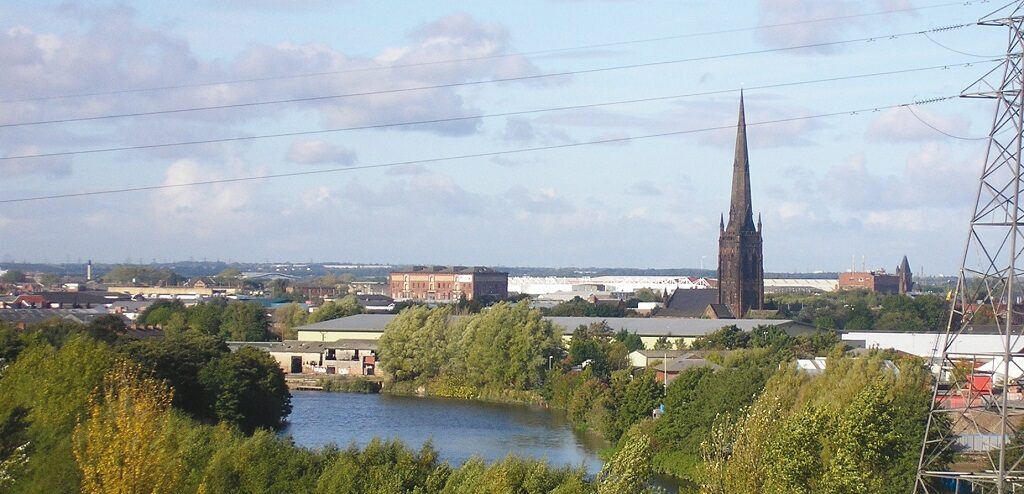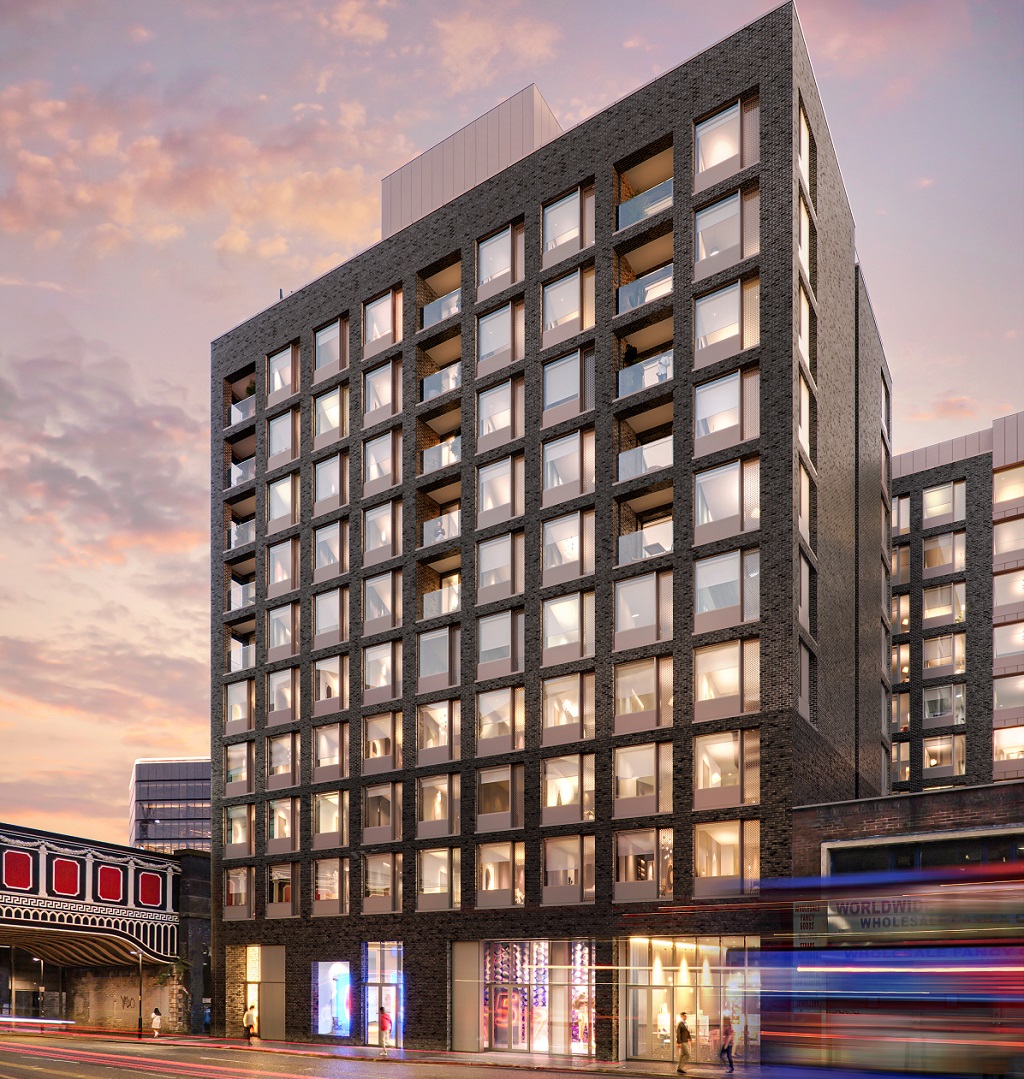The Subplot
The Subplot | Nutrients and New Towns
Welcome to The Subplot, your regular slice of commentary on the business and property market from across the North of England and North Wales.
THIS WEEK
- SPECIAL REPORT: New Towns and nutrient neutrality. Labour and Conservatives float planning reforms. Are they worth your time?
FLUSHING OUT PLANNING REFORM
New Towns and nutrient neutrality
Both the Conservative government and Labour opposition are floating potential ways to mend what pretty much everyone agrees is a broken planning system.
You can tell a general election is coming: this week Labour was trailing a return of New Towns, the Conservatives took a swing at restrictive nutrient neutrality rules, and both were mulling the merits (or otherwise) of a switch towards a zoning/permitted development rights planning system. Let’s start with the controversial stuff.
New Towns encore
A call for more New Towns has a nice, decisive ring to it, recalling the era of post-war growth and optimism. Plus most people know what a New Town is – hiya Warrington, Skelmersdale, and Peterlee. Better still, since many will assume it means all the housing they don’t want on their own doorstep will go somewhere else miles away, it allows politicians and the public to be pro-housing without committing themselves to anything they might not like – so it’s brilliant politics.
Missed target
But is it a good idea? Kevin Logan’s team at Maccreanor Lavington is advising on Birkenhead’s rethink and the masterplan for Manchester’s Red Bank. He thinks intensification is a better idea. “My view is, we need to be actively building back into our towns and cities, utilising intensification and compact urban growth approaches. We need to prioritise existing communities, augmenting them with considered growth, which would bring vitality, social, and economic opportunities, and deliver the resources that are needed,” he says. “We need to stop now building on greenfield or the countryside – this space is crucially required for the growth of ecology, biodiversity and resilience. We need to wild the hell out of the countryside, and grow communities and their ecologies within their existing urbanity.”
Time consuming
Or try this. “New Towns rarely work – they can too easily become large soulless areas of residential development. We would be better directing policy and funds towards intervention in existing towns and cities,” says Kate Pix, regeneration director at Kajima Europe, currently at work in Rochdale and Knowsley.
Hugely expensive, very complicated to deliver, requiring masses of political commitment over several parliaments, diverting money and attention from existing run-down towns, and maybe not universally successful first time ’round – Subplot didn’t find anyone in the Northern planning or property world who thought the New Town idea had legs. Feel free to add your comments below the line.
Applause
However, what people did like was Labour apparently thinking hard about the planning system. “At least it shows a direction of travel from a potential new government that planning is a serious matter to be grappled with,” says Colliers head of planning Anthony Aitken. He adds that you could achieve much the same with urban extensions to existing towns, a proper five-year housing target, a review of Green Belt, and a rule requiring councils to keep their local strategic plans up to date. All of that is said to be in Labour’s mind too.
And the Conservatives?
Relaxing nutrient neutrality rules is regarded as an easy win. Developers say the rules have held up plans for 92 houses in a single scheme in Carlisle, and the government reckons in total up to 100,000 houses could have been stalled or stopped. To recap: EU rules dating from 1992 required planners to think about the impact of nitrates and phosphates created by new development (meaning fertilisers on land, and effluent from your toilets). Everything was fine until 2018 when the European Court re-interpreted this to mean if there was any risk of a bad outcome, you couldn’t do it. Soon afterwards Natural England issued guidance that amounted to a moratorium on new building, and here we are today. Labour doesn’t seem to object.
Removing the gold plate
Ministers have tabled amendments to the Levelling Up Bill to take us back to where we were before the gold-plating began. “Nobody is saying nutrient issues aren’t important, but no one concern can stand above everything else. There has to be some clever thinking here,” says Harry Bolton, senior director and planning lead at CBRE Manchester. According to Colliers’ Aitken the real issue here is not property or planning, but the investment strategy and funding model of the water companies. Developers are caught in the crossfire with environmentalists.
Day Zero
Maybe a much bigger planning reset is required? Centre for Cities is among those promoting the idea of a zoning system, as used in much of the rest of the world. There is serious interest from politicians, particularly Northern Labour ones such as Stretford and Urmston MP (and former Trafford Council Leader) Andrew Western.
PDR with knobs on
It works like permitted development rights: each zone allows you automatic permission if you tick all the right boxes. The government writes the rules for what a zone allows, and councils prepare a map of which zones go where. After that, planning is simply about fitting the right building into the right zone. Simple, predictable, uncontroversial – at least, that’s the idea.
Coherent thinking
The big win is that you have genuine spatial planning, which means housing and jobs can be fitted into transport infrastructure, health, the lot. Anthony Breach, senior analyst at Centre for Cities, laughs genially at the idea that this is a return to 1960s central economic planning, but doesn’t exactly say it isn’t.
“Local plans today… don’t really think about the relationship of development with infrastructure and transport. But you could merge zoning in with local transport plans,” he says. “Zoning is more like how the rest of the world does planning…planning [in England] is a huge barrier to deliver whatever politicians want to do – from NHS reform, to carbon emissions, to disparities in income… and there’s now greater intellectual grasp of the need for reform.”
Not so keen
Politicians and policy wonks may like this idea, but the property business not so much. CBRE’s Bolton says the idea is “treating the symptom, not the cause, which is that planning has been chronically underfunded and just waving a wand or simplifying won’t help.” He also suspects zoning is solving a problem that doesn’t exist: compliant schemes being stopped. “A beige scheme, which is absolutely compliant with the rules, is going to be fine under zoning– but they tend to sail through the planning system as it is at the moment anyway.”
Hard cases
Suppose you want to build a storey higher than the zone allows, or go a few hundred yards outside a zone boundary, how does a zoning system cope with that? “Developers will always test the feasibility of what’s on offer, and it’s right that they should,” Bolton says. He suggests you could deal with this by having tightly written rules, with few exceptions, but thinks that won’t erase the tension. According to Breach if developers push the envelope in a zoning system then the local council would likely have discretion, as they do today – so we’re back to square one.
Never stop fighting
And then there’s the courts. If angry residents can’t win their case in front of the local planning committee, they won’t just roll over. They will fight it in the courts, a tendency that has increased as the English planning system has become more systematic and rules-based. “It’s a fact we’ve seen a huge amount more litigation over the last few decades,” says Bolton. Once again, we’re back to the uncertainty and time-consuming processes of today’s system.
All hail the new document
The most significant imminent change may have gone unnoticed, and is in the Levelling Up Bill already: newly minted National Development Management Policies will be important. These will be practical what-to-do versions of the high ideas found in the National Planning Policy Framework, and in effect instructions to local councils about exactly what gets built. NDMPs are to be read alongside (and count ahead of) local plans. The idea represents a potentially massive centralisation of planning policy, not entirely unlike zoning. “NDMPs will simplify planning considerably, they could be quite beneficial and unlock development effectively,” Breach says.
Get your act together
But what everyone wants is for the politicians to sort themselves out on planning. A cross-party consensus would be nice. Says Kajima’s Pix: “You can’t ask politicians to take the politics out of development, but we do need longer-term approaches that consider legacy as well as instant electoral returns. Development cycles and political cycles do not run concurrently and therefore on long-term projects, just when some momentum is being achieved a change in personnel or policy can immediately scupper this, which can add years onto when communities can expect to receive the desired benefits.”
Get in touch with David Thame: david.thame@placenorth.co.uk





This is a very disapointing and utterly one sided piece on new settlements. It completely fails to consider the very many benefits of new settlements and the fact that many households want the benefits of a new home, but don’t want to live in a very dense urban environment. I expect better reporting from Place NW!
By Anonymous
Critical failure of thinking at Maccreanor Lavington. The idea that you can deliver the range of housing needed on urban, brownfield sites is ludicrous. That is not to say we shouldn’t seek to optimise those sites, but they won’t deliver enough units anyway and they won’t provide range. Added to the fact that we all know these sites are more difficult to bring forward, the speed at which you deliver them is also affected. The comment also plays into the idea that open land outside urban boundaries is de facto ecologically beneficial. It isn’t. Of course you could (and, I think, should where possible) re-wild land and we should be seeking to protect the best and most versatile agri land, but we’ve got loads of it in this country. Absolutely loads of it. I’m not an advocate for building on greenfield and Green Belt as a matter of course – we absolutely shouldn’t. But it has to happen to meet housing need, so it’s about finding a proper planning system which allows that to happen with the least harm in other regards.
The current debate about delivery of housing is infantile, frankly, and has been for some time. Hijacked by politicians too weak to tell the truth and who deal in sophistry to support their stance – much of which is about protecting their own position rather than about meeting the needs of the public. It has led, in part, to the utter nonsense of prior approvals, many of which lead to sub-standard housing schemes that don’t deliver anything by way of support for the housing that is delivered – no affordable, no highway provision, no open space, no education contributions, etc. And some politicians will tell us this is a good thing.
The approach to housing in this country is an embarrassing and shameful mess.
By Unlevelled for balance
Great comments from ‘unlevelled for balance’. Housing, infrastructure and planning is in a mess and probably the worst I’ve seen with an incessant nimbyism, hyper local politics, meaningless and ignored policy and constantly delayed planning.
Intensification and brownfield undoubtedly has it place although isn’t generally of scale to meet the true demand, provide variety and more often requires intervention from the public purse ,or viability argument to proceed without input to practical or social infrastructure in some of our more challenging towns We need a balanced approach and not everyone wants to live in an urban location and not all employment is centred there. New towns and large urban extensions have a place if we are to meet housing need and also improve our housing stock.
By Les Payne
New towns don’t really address the issues that face GM. One of the reasons the satellite towns in the north of GM lack a certain economic vibrancy is green belt. My old home town, Rochdale, is over 60% green belt, and significantly under-indexes in people with higher incomes and higher skills because it also under-indexes in the ‘middle class’ housing despite having strong transit links into Manchester. I’ve seen many lazy observations that the towns like this lack spending power, the skills to attract employers, or have highly ranked schools without reflecting the fact that land use planning has prevented places having a broader population that can take advantage of being close to a thriving city.
By Rich X
Rich X is spot on. Towns like Rochdale, Oldham and Bolton, have wealthy rural hinterlands but the inhabitants of these wealthy hinterlands, don’t patronise the hollowed out towns, they pay council tax to. Ask someone in Uppermill, when they last visited Oldham and they will say, that they go to the Trafford Centre, or Central Manchester, as there is nothing to attract them there.Bury is slightly different as it has a relatively wealthy urban bit, bordering Manchester too, which is possibly why, it has done better for investment than its neighbours. We have to use the L word here, “London,” as an example. As South Manchester, becomes as expensive as the South East, people will need to see these towns ,as an alternative but decent housing stock is necessary and better facilities, within these towns, plus better schools.They will have to be Manchester suburbs to thrive. In the way the South East is London’s dormitory, these towns must be the same for Manchester. Manchester was never the Mother city for these towns, and that mindset is beginning to change. A recent report suggested that productivity has increased noticeably in Oldham, Rochdale and Bury, but not in Bolton. The Metrolink is Bolton’s missing factor. Burnham must continue to bang on about expansion.
By Elephant
Thanks Elephant, so much rings true there. I have relatives in Littleborough who disdain Rochdale town centre, but of course have convenient access to Manchester by rail, tram, and motorway (but somehow do everything they can to prevent more housing there). You are so right that there’s a historic opportunity for these towns to create the new suburbs for a thriving Manchester, and that will naturally bring more money and skills into this places. It’s also a chance to address towns like Middleton (all the boroughs in the north of GM seem to have their somewhat hard done by 2nd or 3rd townships) that should have been allowed to evolve as a suburban outgrowth of Manchester. The fact that green belt left it sub-scale and isolated is one of the reasons it’s transit connections are weak, and that makes it hard to attract new investment to the town. Atom Valley is a valid strategy, but it is in a way compensating for years of these places not being able to evolve.
By Rich X
If we are having a grown up conversation about housing provision then we should think about the costs involved in “affordable” housing requirements. The value extracted is better spent on infrastructure and public space. Leave redistribution to the tax and benefits system where it can be done in a controlled and transparent way.
By Construction Enthusiast